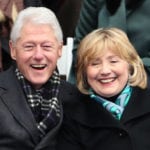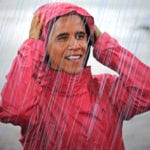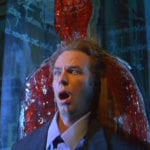 History
History  History
History  Weird Stuff
Weird Stuff 10 Wacky Conspiracy Theories You Will Need to Sit Down For
 Movies and TV
Movies and TV 10 Weird Ways That TV Shows Were Censored
 Our World
Our World 10 Places with Geological Features That Shouldn’t Exist
 Crime
Crime 10 Dark Details of the “Bodies in the Barrels” Murders
 Animals
Animals The Animal Kingdom’s 10 Greatest Dance Moves
 Movies and TV
Movies and TV 10 Box Office Bombs That We Should Have Predicted in 2025
 History
History 10 Extreme Laws That Tried to Engineer Society
 History
History 10 “Modern” Problems with Surprising Historical Analogs
 Health
Health 10 Everyday Activities That Secretly Alter Consciousness
 History
History 10 Dirty Government Secrets Revealed by Declassified Files
 Weird Stuff
Weird Stuff 10 Wacky Conspiracy Theories You Will Need to Sit Down For
 Movies and TV
Movies and TV 10 Weird Ways That TV Shows Were Censored
Who's Behind Listverse?

Jamie Frater
Head Editor
Jamie founded Listverse due to an insatiable desire to share fascinating, obscure, and bizarre facts. He has been a guest speaker on numerous national radio and television stations and is a five time published author.
More About Us Our World
Our World 10 Places with Geological Features That Shouldn’t Exist
 Crime
Crime 10 Dark Details of the “Bodies in the Barrels” Murders
 Animals
Animals The Animal Kingdom’s 10 Greatest Dance Moves
 Movies and TV
Movies and TV 10 Box Office Bombs That We Should Have Predicted in 2025
 History
History 10 Extreme Laws That Tried to Engineer Society
 History
History 10 “Modern” Problems with Surprising Historical Analogs
 Health
Health 10 Everyday Activities That Secretly Alter Consciousness
Top 10 Presidential “Bad Boys”
There is no shortage of lists of the “best” or “worst” presidents in U.S. History. Historians seem to relish the opportunity to grade our leaders on their performance in the top job. The following list does not take into consideration whether the individual was a good or bad president, but rather looks at the character of the president and how their actions led to some truly dire consequences or resulted in damage to the prestige of the office.
10 Presidential Conspiracy Theories
10 U.S. Grant (1869-1877)
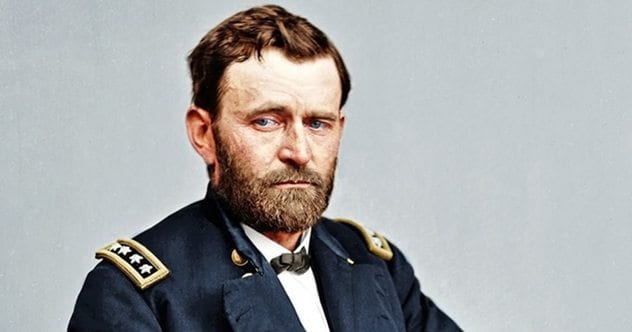
The Grant administration was possibly the most corrupt in our nation’s history. So much graft and bribery occurred under his watch that “Grantism” is how some came to describe greed and corruption. Major scandals rocked his administration, including “Black Friday,” a scheme to corner the gold market in which his brother-in-law was involved (Grant did act to foil the scheme, but not before thousands were harmed). The “Whiskey Ring, “scandal saw over 100 federal officials convicted in connection with the selling of whiskey stamps to distillers at huge discounts (Grant sullied his reputation by shielding his personal secretary). The “Credit Mobilier,” scam in which a phony company was set up to help construct the transcontinental railway, but in reality, bilked the government out of $20 million with Grant’s vice president, Schuyler Colfax, taking bribes. One of the worst was the “Indian Ring,” scandal where Secretary of War William Belknap took bribes from companies seeking licenses to trade on reservations.
Grant’s naiveté in dealing with politics led him to appoint and/or trust people that proved unworthy. Grant himself acknowledged his lack of political experience as having contributed to the many moral lapses of his administrations. His personal honesty and lack of involvement in any of the schemes places him lowest on the list; however, this does not absolve him of personal responsibility for allowing them to happen and his failure to more proactively address them.[10]
9 Chester A. Arthur (1881-1885)
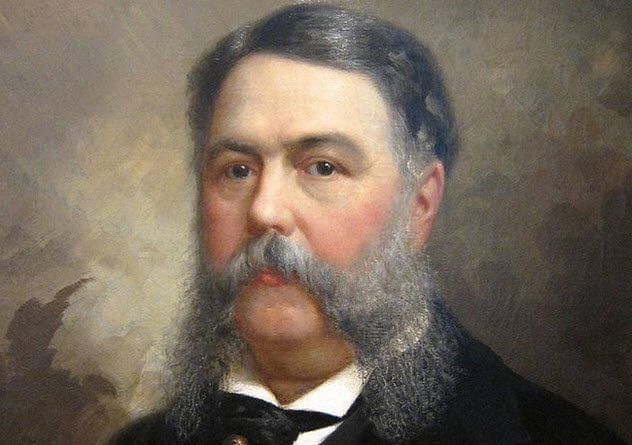
Arthur was probably more pathetic than corrupt, just as his ascendancy to the White House was an historical accident rather than an achievement. Arthur never held elected office until he acquired the vice presidency through the efforts of Senator Roscoe Conkling of New York. He was basically a stooge for the New York Republican power brokers and was given the job as customs collector for the Port of New York, grossing the exorbitant amount of $50,000 per year in 1877. Arthur was fired from his post by President Rutherford B. Hayes due to charges of corruption; however, he was soon made chairman of the New York Republican State Committee.
During the 1880 Republican convention Conkling and Arthur had supported the nomination of former president Grant, which says something of about their attitude toward corruption. Arthur was given the spot of vice president without the support of James Garfield who went on to win the presidency. When Garfield died after having been shot by an assassin, Conkling, who opposed the reform minded Garfield, thought that he could control the weak Arthur who had helped to make trouble for the Garfield administration. But Arthur surprised almost everyone, including perhaps himself, by supporting the Pendleton Civil Service Reform Act of 1883.
To his discredit, he signed into law the Chinese Exclusion Act of 1882. A mixed bag overall, Arthur’s overall career and history of corruption merit making him number nine.[9]
8 Calvin Coolidge (1923-1929)
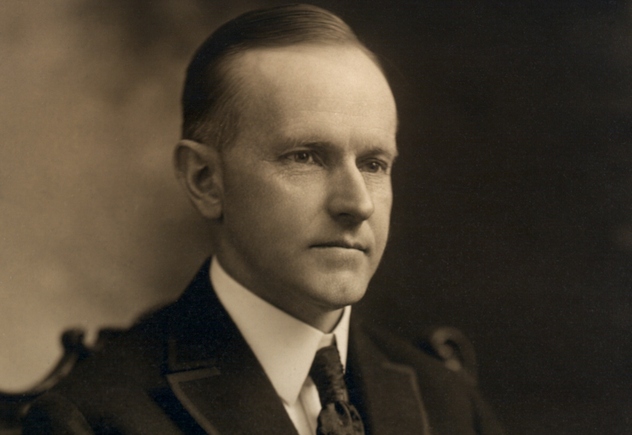
While “Silent Cal,” as he was glossed by his contemporaries, was not personally corrupt, he did little to address the excesses of Wall Street that led to the market crash the year he left office (1929). This left Herbert Hoover, who had warned Coolidge that Wall Street needed greater regulation, to take the blame for the coming Great Depression. Coolidge’s laisse faire philosophy of government led him to be seen as callus by famers (he vetoed farm subsidies) and the victims of the devastating flood of Louisiana in 1927 who received little assistance from the federal government. Some have speculated that the black farmers fled to Illinois and the left the Republican Party for good.
Notwithstanding the foregoing, the most compelling reason for placing Coolidge on this list may be his short sighted and ill-informed decision to refuse England and France in their effort to restructure the reparations debt imposed upon Germany after WWI. Having borrowed money, themselves from the U.S. to fund their war effort, they recognized the threat to peace. It was thought that if Germany had some debt relief the result would have an overall positive economic impact, allowing Germany to import more foreign goods, including American, which would ultimately benefit the lenders. Coolidge refused, saying coldly, “They hired the money, didn’t they?” We all know how that all worked out.[8]
7 James Buchanan (1857-1861)
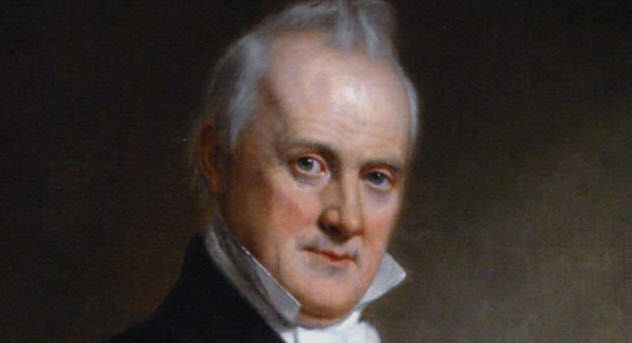
It would be too harsh of a judgment to blame the deaths of over 600,000 Americans on just one man; however, the role that James Buchanan as president played in doing nothing to stop the south from preparing for the civil war certainly contributed to the length of the war. Many of his contemporizes blamed him for his inaction calling the conflict “Buchanan’s War.” Buchanan gave lip service to the illegality of the southern states secession, but said that the federal government could not legally stop them.
Though a northerner, Buchanan was clearly a southern sympathizer. He supported slavery while in the U.S. Senate by voting for the gag rule that limited addressing the issue. He also recommended that Kansas be admitted as a slave state, an action that only served to exacerbate the situation in “Bloody Kansas” where pro-slavery and abolitionists were fighting a precursor to the civil war. He also sent a letter to the chief justice of the U.S. Supreme Court urging the justices to give a broader scope to the infamous pro-slavery Dred Scott Decision and he filled his cabinet with southerners. U.S. Grant wrote in his memoir that Buchanan’s Secretary of War, John B. Floyd, who later became a Confederate general, let federal canons and small arms fall into southern just prior to the outbreak of the war.[7]
6 Lyndon Johnson (1963-1969)
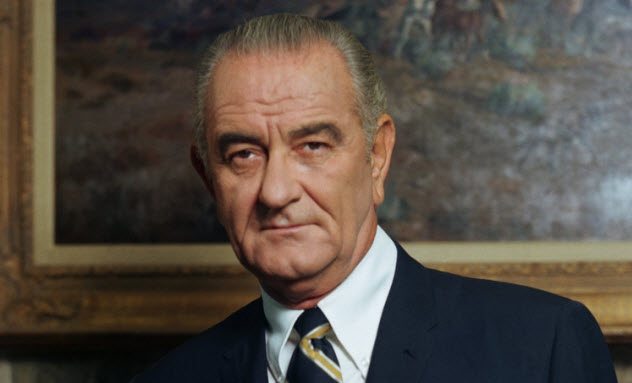
Lyndon Baines Johnson had such a strong reputation as a cunning and maneuvering politician that to this day many conspiracy theories of the JFK assassination place him at the top of the conspirators. Johnson’s misdeeds go back to at least his senate democratic primary against the popular former governor of Texas. Believing that he had lost the previous senate race because the ballot boxes had been “stuffed,” LBJ made sure that he would be the one in control at the end of his race with Governor Stevenson. Though he had a large lead the night of the election, Stevenson eventually lost to LBJ by around 1,000 votes. LBJ’s people had absent voters counted and in some cases simply added votes to the tallies for him.
Lady Bird Johnson’s ownership of a radio station in Texas, in which LBJ claimed he played no part, helped make the Johnsons rich. An example of how is illustrated by the case of Don Reynolds. When LBJ had trouble getting life insurance because of his heart problems, he found Reynolds (through his friend, the infamous Washington lobbyist Bobby Baker) to write the policy. LBJ strong-armed Reynolds into buying advertising time and providing expensive gifts. Reynolds was actually being interviewed by federal investigators when news came the President Kennedy had been killed. The Investigation was dropped. Baker’s corruption led to him being convicted of using campaign donations for his own use.[6]
5 Bill Clinton (1993-2001)
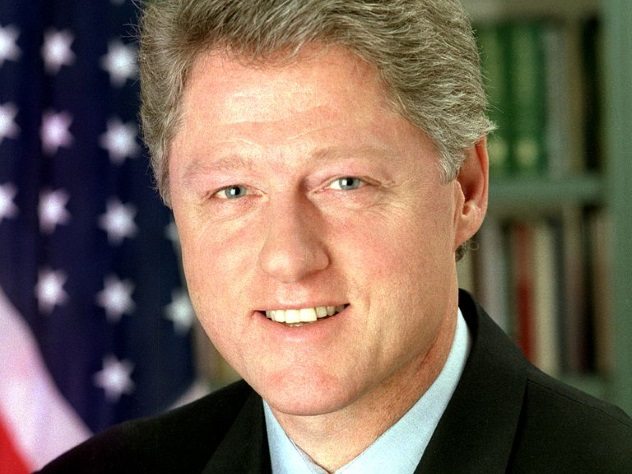
Bill Clinton can provide material enough for a top ten list of his own. Though most of President Clinton’s scandals predated his presidency, the number and serious nature of the allegations against him cannot be overlooked. Starting with the Whitewater scandal that both he and Hillary were involved with during his time in Arkansas, to the present-day Clinton Foundation, Clinton has faced allegations of either financial or sexual misconduct.
In 1998 Clinton settled a lawsuit brought by Paula Jones, who alleged that Clinton had exposed himself to her while she was an employee of the State of Arkansas. Although he agreed to pay $850,000 to settle the suit, Clinton admitted to nothing. Add to this list Kathleen Willey, who claimed Clinton groped her on the same day her husband committed suicide, and Juanita Broaddrick, who says Clinton raped her during the 1980’s.
The most famous instance of Clinton’s sexual misconduct was his “affair” with Monica Lewinski. This became the center of the impeachment process against him when it was found that he lied about their sexual relationship. It is estimated that the investigations into the Clinton administration cost $80 million. Clinton survived the impeachment, but lost his Arkansas law license for five years and was disbarred from practicing before it by the U.S. Supreme Court.[5]
4 John F. Kennedy (1961-1963)
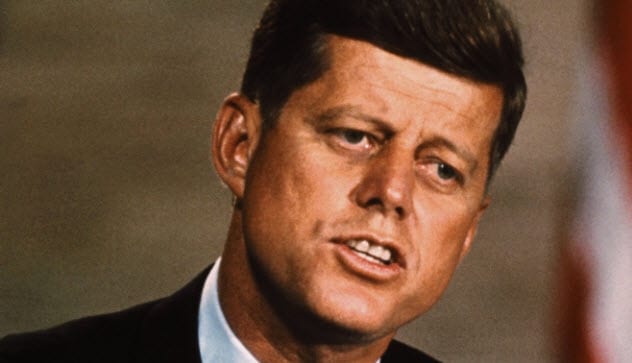
Kennedy’s infamously indiscreet affairs made them a matter of national security. Particularly in his era, elected officials at any level opened themselves up to blackmail should the wrong party get hold of the proof. In the book, Havana Nocturne, it is claimed that the mob later regretted not taping an orgy they set up for the young JFK.
JFK’s affair with Judith Campbell left him particularly vulnerable. At the same time she was sleeping with him, Exner was having an affair with mafia boss Sam Giancana. Campbell later revealed that she became pregnant by JFK and had an abortion arranged by Giancana. She also revealed she carried cash from the mob to JFK.
Possibly even more damning is JFK’s cover-up of his serious health problems. While projecting an image of “vigor” and youth, Kennedy had Addison’s disease, which made him extremely vulnerable to infections. JFK had received the last rites of the Catholic Church at least three times prior to his assassination. Given the numerous drugs he took, some mood altering, looking back at the nuclear showdown with the Soviet Union becomes even more frightening. Soviet premier Khrushchev met JFK for talks in Vienna in 1961, when Kennedy was suffering intense back pain, and came away from the meetings completely unimpressed. He was convinced that, ” He (Kennedy) is very young, not strong enough; too smart and too weak.” Khrushchev almost certainly took this into account when he boldly decided to put nuclear missiles in Cuba and build the Berlin Wall.[4]
3 Warren Harding (1921-1923)
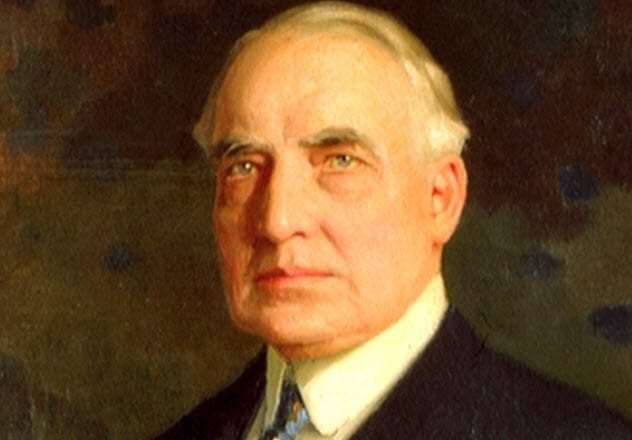
President during one of the greatest political scandals in the history of the United States, allowing his friends to get rich from their positions in office and using the White House for his sexual escapades, Harding is an easy call to add to this list of scoundrels. The Teapot Dome scandal put the first presidential cabinet member, Albert Bacon Hall, the Secretary of the Interior, in prison. Although there is no proof that Harding benefited financially, numerous other scandals involving his cabinet members were made possible because Harding did nothing to reign in friends he had appointed to his cabinet.
Harding’s administration was rife with misconduct and criminality, not the least of which came from his attorney general, Harry M. Daugherty, who, along with his friends called the “Ohio Gang,” enriched himself by selling pardons and using his position to gain from prohibition. Daugherty was later charged with corruption, but was able to evade conviction.
A self-described “man of little talents,” Harding did have a talent for womanizing. In 2014 the Library of Congress released letters from Harding to his mistress, Carrie Fulton Phillips, in which he used the code name “Jerry” for his, shall we say, “manhood.” Around the time of the release of his letters, DNA testing revealed that he fathered a child with another woman, while he was wooing Phillips. He refused to recognize and let her be “vilified” for insisting he was the father.[3]
2 Thomas Jefferson (1801-1809)
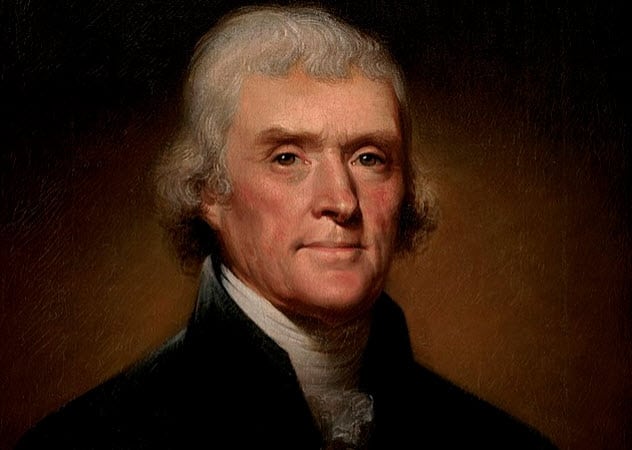
Placing the iconic Jefferson second on this list may seem shocking; however, if character counts, then Mr. Jefferson has a lot to account for. The Sage of Monticello was a man who did not have the stomach to confront his political opponents, using others to bad mouth them. George Washington, who made Jefferson his first secretary of state, discovered that Jefferson was behind rumors accusations that Washington who had grown old and feeble, and let him know in no uncertain terms.
Jefferson was a hypocrite, both personally and politically. This penultimate republican, reacted to the blood bath of the French Revolution by stating “…rather than it should have failed, I would have seen half the earth desolated. Were there but an Adam and Eve left in every country, left free, it would be better than as it now is.” Of course his passion for freedom went only so far; he owned slaves, refused to join Alexander Hamilton and Aaron Burr in their opposition to slavery because it would not be accepted by his constituency, and had several children with at least one of his female slaves, Sally Heming’s.
Jefferson despised banks, yet borrowed so much to purchase books, wine and other luxuries that he died deeply in debt, leaving his family to sell off most of his remaining property, including Monticello. Jefferson also encouraged scheming Americans to enter the Louisiana Territory before it was purchased. But when Vice President Aaron Burr tried his hand at meddling in the Spanish possession, Jefferson pursued him doggedly and had him charged with treason.[2]
1 Andrew Jackson (1829-1837)

Democrat Andrew Jackson was an angry violent man with a “sometimes savage temper,” who held tightly to grudges and was involved in between 13 and over 100 dues depending on the source. He killed one man, Charles Dickerson, coldly shooting him after Dickerson had first wounded him. He also wounded a former friend, Thomas Hart Benton, who later became a U.S. Senator from Missouri and one of the subjects of John F. Kennedy’s Profiles in Courage.
Jackson rates number one on this list because he not only allowed the forcible removal of the Cherokee from the southeastern states to Oklahoma, the infamous “trail of tears” where thousands of Native Americans died along the way, he did so illegally and in violation of the decision of the Supreme Court, which ruled against him. Reacting to the court decision, Jackson is said to have directed his response to the chief justice, the brilliant John Marshall, stating, “He has made his decision, now let him enforce it.”
A strong supporter of slavery (a hallmark of the Democratic party), Jackson appointed Roger Taney to replace Marshall as chief justice. Under Taney’s leadership the court was made infamous by its Dred Scott Decision (1867). Taney wrote the majority opinion in which he stated that blacks were not citizens under the constitution and could never be citizens of the United States. Jackson’s manner of governing was considered so autocratic, his critics started to call him “King Andrew I.”[1]
Top 10 Fun Facts from US Presidential Inaugurations
About The Author: Mark J. Goodman is a published poet and author. Mark writes about history, politics and religion. He has written an unpublished children’s book, is working on a screenplay and plans to write a book on the history of his multiracial family in Louisiana.
Mark served two terms as the mayor of Laguna Niguel and was a member of the Orange County Fire Authority board of directors. He has also served as chair of the County of Orange 20 Year Transportation Master Plan Task Force and member of the board of directors of the Orange County Transportation Corridor Agencies (budget & finance committee) as well as on numerous other countywide boards and committees.
Mark holds a Master of Public Administration Degree (urban planning emphasis) from California State University Fullerton.


